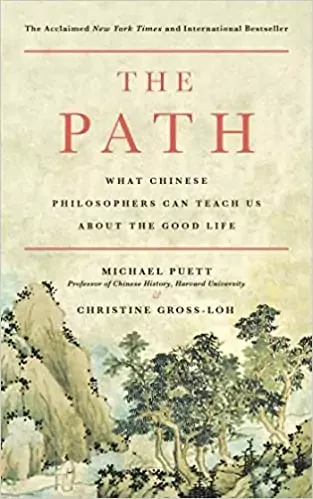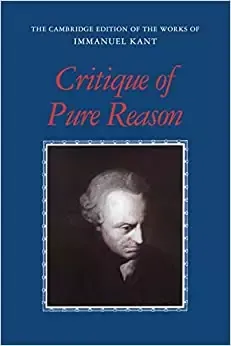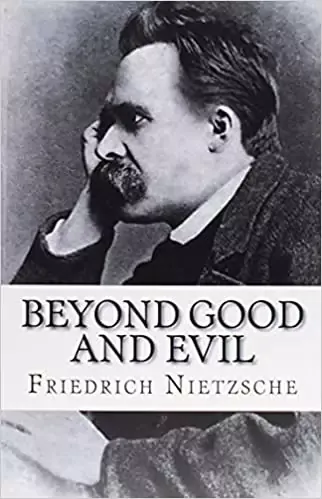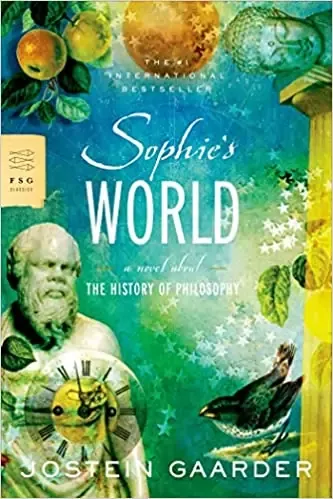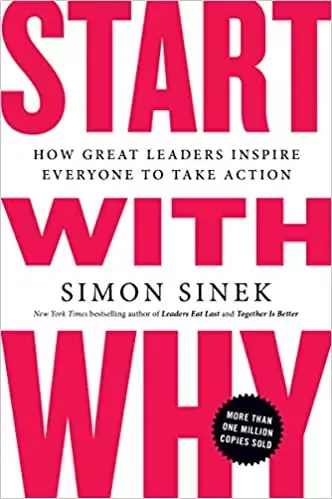1. Anger and Forgiveness
The central question discussed in this book Anger and Forgiveness is what exactly is the intentional content of anger, and how we should confront this emotional attitude that pervades human society and pervades the world today.
The book begins with Aeschylus's three-act tragedy Orestia and is inspired by the fundamental changes in the private and public spheres of the moral sensibilities of political justice that the play celebrates.
The book begins by pointing out two major changes in the ancient world that occurred in the fifth century BC. One is the introduction of a legal system to replace and end the endless vengeance of blood relatives represented by the ancient goddess of nemesis (Fries), and the other is to make coercive, destructive demons whose sole purpose is to cause pain and disease.
The ghostly vengeful goddess abandons revenge, listens to advice, and instead accepts benevolent feelings, is limited to provoking any calamity, and gives it a series of courtesies after joining the city-state.
Behind the dramatic picture of these two major changes, the author is trying to convey the message that the genes of blood revenge exist only in that primitive tyranny that does not coordinate brutality or limit torture and cannot be compatible with the laws of a civilized society committed to the rule of law in the system.
In particular, the author believes that this second major change is often easy to ignore, but it is not only from external containment, but from a profound internal reconstruction; therefore, it is as profound as the previous major change, but also is especially important for the achievement of the former.
As Aeschylus put it, political justice is not just about disciplinary anger, it is about transforming it from inhuman, compulsive, and bloodthirsty to human, rational, calm, temperate, and measurable.
More importantly, justice does not focus on the immutable past for the purpose of revenge, but for the purpose of deterrence and the creation of future well-being and prosperity—though Nemesis may not have died, she is experiencing both.
It has long since been transformed into an instrument of justice and well-being. In this way, the law both secures us when we are oppressed by anger or revenge mission and enables us to take care of each other when we are not oppressed by anger or revenge mission.
2. How to Live
How to Live: Or A Life of Montaigne in One Question and Twenty Attempts at an Answer by Sarah Bakewell
"How to Live" written by the British philosopher Sarah Bakewell, connects Montaigne's life, works and contacts, and the influence of later generations, answering "how to live", focusing on 20 topics, A unique biography of Montaigne's thoughts is linked together.
Saravel believes that what drives Montaigne to keep writing is his curiosity about all human life, past and present.
Montaigne continued to think about the emotions and motivations behind human behavior, and because he was a ready-made example, he also struggled to think about his own life.
In terms of family background, Montaigne was an aristocrat. His father, Pierre Ekon, was once the mayor of Bordeaux and a wealthy businessman.
Because Pierre's grandfather had bought the Chateau Montaigne and the feudal lands connected to the castle, in Michel's generation, the family was able to "Montaigne". Tian" crowned the surname and rose to a new noble with fame and wealth.
Pierre has a broad vision and is enthusiastic about the Renaissance movement. He is fond of all new liberal things. He upholds a unique liberal concept in his son's education. Pierre sent Little Montaigne to a poor village, "so that I might be united with them, attached to them".
Family background and education were very important to strengthen Montaigne's ego, and he never turned his back on his family origin.
"How to Live" is a good book to read. Divided into twenty chapters, it introduces Montaigne's life and creative experience along the timeline and extracts twenty points from Montaigne's Essays.
The content of the book is very interesting and goes like this:
In chapter 1, we ask: How to live? Montaigne says: Don't worry about death;
In chapter 2, we ask: How to live?
Montaigne says: Live in the moment...
Constructing a book is not only very literary but also quite scientific because Montaigne's "Essays" and his life experience are inseparable and mutually confirmed. ·
Author Sarah Bakewell said she "voluntarily served as Montaigne's slave for five years" and did solid research. After the book was published, it won many awards and was also selected as Amazon's best book of the year. It can be expected that we can read a highly restored Montaigne in this book "Reading Montaigne for Life".
Montaigne was as open-minded as an ancient Eastern wise man and as curious as a modern Westerner. Living in a dark, barbaric age, he was open-minded, rarely prejudiced, and often questioned himself.
He probed deeply into himself and then peeped into the mysteries of the world, and encountered confidants not only in his own era but also in subsequent ones—because, sincere voices, there will always be confidants.
3. Essays and Reviews
Since Plato, philosophers have offered accounts of the ethical values and moral principles we should pursue individually and as a society. Although nearly moribund for most of the last century, the ethical theory was revived in the 1970s,
because of the influence of John Rawls's A Theory of Justice (1971), a systematic treatment of political and economic justice in the liberal social contract tradition. Robert Nozick's libertarian reply to Rawls in Anarchy, State, and Utopia (1974) was followed by a stream of new works in political philosophy, continuing to the present day.
In moral philosophy, theories of our personal moral duties were developed by Thomas Nagel, TM Scanlon, the utilitarians RM Hare and Derek Parfit, and others. And in legal philosophy, Ronald Dworkin revived the natural law doctrine that moral principles are implicit in legal systems.
All of these philosophers made claims to ethical objectivity that go beyond our subjective attitudes or cultural practices. Some of them made claims of universal moral truth as well.
Bernard Williams was among the major moral philosophers of this extraordinarily fruitful era. He occupied a distinctive position: far from believing that the aim of moral and political philosophy was the construction of theories, much of his work was critical of such theories.
1. But Williams was more than a brilliant critic of others' positions. He sought to revise ethical thinking, offering deeply original and subtle correctives to what he considered to be misguided ideas about moral responsibility, free will, duty, blame, guilt, and right and wrong that underpin Western morality.
Williams, who died in 2003, was a professor of philosophy at London, Cambridge, and Oxford for most of his career; in his later years, he joined the Department of Philosophy at the University of California, Berkeley.
In addition to his many contributions to ethics, he wrote important essays on personal identity, free will, science, and evolution; books on Plato and Descartes; and many works on the history of philosophy.
2. His essays on opera were published posthumously (in 2006) by his wife, Patricia Williams. Williams served on several British government committees and commissions, chairing the 1979 Committee on Obscenity and Film Censorship.
The work reviewed here is the fifth volume of Williams' collected papers (including On Opera) to appear since 2005. The seventy-one reviews and essays in the new collection extend over forty years, from 1959 to 2002. Thirteen of the works initially appeared on these pages.
The reviews discuss many of the period's main books on ethics as well as writings on other significant philosophical, academic, and literary topics. Williams succinctly summarizes each work and then critically assesses the issues, often brilliantly.
3. There are also thirteen essays on wide-ranging topics, including God, existentialism, Richard Wagner, abortion, the importance of the humanities, and the need to be skeptical.
4. How To Be A Stoic
Interested in Stoics and want to study to guide my life. "How To Be A Stoic" runs concurrently with this book, and I have to say that this book is very shallow, the derivation is weak, and the examples resonate very little.
Useful content is as follows:
"Stoicism doesn't ask people to hide or suppress emotions, it asks us to admit our emotions, reflect on where they came from, and then regulate them so that they work for us.
It also requires us to remember what matters on our own Take control of what is out of your control, so focus your energy on the former and don't waste your time on the latter.
This school of thought teaches us to practice virtue and try our best to guide the world. At the same time, always pay attention to ourselves The moral dimension of behavior.
Theoretical Framework of Philosophy: To live a good life (in the well-being sense), one must understand two things.
- The nature of the world (and, by extension, the individual's place in the world), and
- the nature of human reason (including when reason fails, as this is so common).
If you want to be a good and noble person, you must train in three ways.
- The first aspect has to do with two willingnesses, the willingness to get and the willingness to avoid. People have to train themselves to get what they want and avoid what they want.
- The second aspect concerns the two impulses—the impulse to act and the impulse not to act—in short, to find that degree: we should think carefully, be careful, and do things step by step.
- The third aspect is to keep yourself from being deceived and not judging at will.
The above three points correspond to the three principles of the Stoics: desire, action, and identification.
The virtues corresponding to desire are courage (acting in the face of facts) and temperance (managing desire to match what we can do). The virtue upon which the principle of action rests is justice.
The virtue on which the principle of identification rests is practical wisdom.
- Wisdom (practical): Navigate complex situations in the best possible way.
- Courage: Do what is right (both biologically and morally) no matter what the situation is.
- Justice: Treat everyone fairly and in good faith, regardless of high or low.
- Temperance: Practicing the principles of moderation and self-control in all aspects of life.
Wherever I go, I am accompanied by the sun, the moon, the stars, the omens, and the dialogue with the gods."
5. The Path
The Path: What Chinese Philosophers Can Teach Us About the Good Life by Michael Puett
Many people think that the West sets the direction of history and provides a perspective on everything, but it is this perspective that keeps us from seeing things as they are.
The following three errors occur:
- We believe that we are living in an era of unprecedented freedom. It took more than two centuries to get rid of fascism, capitalism, bureaucracy, feudal dynasties, medical science, and technological progress. However, the environment and humanitarianism are becoming more and more serious. When our posterity looks back on this era, is it a time of prosperity, freedom, equality, or complacency?
- We think that we can grasp the direction and opportunities of choosing the direction of life and fight against fate through rational minds, fine calculations, overcoming emotional prejudice, and turning experience into data. Is it really?
- We believe that this era is to pursue oneself, show oneself, and be true to oneself in order to achieve goals and find one’s true self. The danger of this era is also to limit the narrow cognition of self and only see a small part of one’s own potential.
The traditional view of history can lead people to ignore the diversity of existence, and modern people believe that only the dominant ideas of the present can control life, which only creates complacency and the truth of modernity is only one of many narratives, which is constructed from characteristics. time and place.
Chinese philosophers will guide us to rethink ourselves, think about the many possibilities in the future, and apply philosophical ideas to our personal lives and practical work.
The moment I saw the title of the book, I became curious - how would I view Chinese philosophy from the perspective of a Westerner, and what effect could this have on my life? Different from the big topics and metaphysics of Western philosophy,
Chinese philosophy is very down-to-earth, and he helped me redefine my life:
- Ritual is not a rigid movement process, but a kind of [imagination], through which people establish a relationship between people. new contact.
- Good qualities such as benevolence and kindness are not useless. Continued self-cultivation becomes an instinct that allows us to spontaneously respond correctly and ethically to things. Through these responses, we can inspire those around us to respond appropriately.
- The Tao is not unpredictable, but every thought and every response we have in our daily life. All choices converge in one's own way
- When you want to improve interpersonal relationships, you must "break" with reality, from the perspective of others, or the perspective of the wider world
- I am a contradiction, changing all the time, with no Qualitative Self. Living in a broken, changing, and surprising world. Nothing is stable, live in the broadest possible way.
- The world is interconnected, and my responses lead to a cascade of effects.
- Overcome the strong with the weak, overcome the strong with softness, and
- maintain a "weak" attitude, which will make me calm and humble, and
- paralyze the opponent to seize the opportunity to counterattack.
- Music and poetry can stimulate a person's perception the most.
- A stable heart and clear ears.
- Embrace everything in constant flow and change
- Work hard to "spontaneity" and follow the path
- I created the world I experience now, and I will make it Be better
- Be open to everything
6. Critique of Pure Reason
In the introduction, Kant made it clear that this book has universal and inevitable validity, not belonging to individuals but to all mankind. Before Kant, philosophy had gone through a long history of metaphysics.
The metaphysics that Kant refers to are the theory about the origin of the world, the highest purpose of the world, etc.
Specifically, it is freedom, the immortality of the soul, and the existence of God. Kant wants to put an end to the long-term dispute.
He said that reason is in trouble because it finds its own incompetence when using the empirical principle to advance to the highest principle, and turns to the transcendental principle, but falls into darkness and contradictions, knowing that there are fundamental Sexual errors that are yet to be found.
So Kant hoped to make a once and for all attempt to end all disputes and find the fundamental error, so the book "Critique of Pure Reason" was born.
From the very beginning, Kant made a distinction between several important concepts: the rational is objective and universal, and the sensibility is individual and changeable. The intellect is the knowledge created by reason on the basis of the perceptual.
Pure reason is the reason that has nothing to do with sensibility. The critique of pure reason is the critique of the faculty of reason in general, insofar as this critique can pursue all knowledge independently of any experience.
Kant's main question is always: what and how much can understanding and reason know apart from all experience Kant is to restore the dignity of philosophy by demarcation.
What Kant did, then, was to describe a structure of pure reason:
"The nature of pure speculative reason consists in a real structure in which all functions are for one, and each for all, because no matter how A small defect, whether it is an error, an oversight, or a deficiency, must inevitably leak out in the application."
This architecture will maintain this invariance for so long, as Kant hoped, because of the results of this experiment. Self-evidence is to proceed from the smallest element of pure reason up to its whole, and vice versa (for even the whole is given in practice by the ultimate intention of pure reason alone) up to each part, the result is equal,
because trying to change even the smallest part will immediately lead to a contradiction, not only of the system but of human reason in general.
7. Phenomenology of Spirit
If "Little Logic" is Hegel's "talk" and introduces the key concepts of Hegel's philosophy, then "Phenomenology of Spirit" is the framework and basic system of Hegel's philosophy, showing the spiritual self-movement, self-d Demonstrated development process.
- The Phenomenology of Spirit is divided into three parts: consciousness, self-consciousness, and reason.
- The consciousness part is divided into three chapters: perceptual certainty, perception, force, and intellect.
which describes the process of the spirit from natural consciousness to self-consciousness. Consciousness begins with perceptual certainty, which is the origin of consciousness and is called "natural consciousness" or "self-consciousness".
Perceptual certainty mainly deals with the relationship between self and object and the problem of certainty in epistemology, that is, how thinking and existence are unified.
The characteristics of perceptual certainty are explained from four aspects: the characteristics of perceptual certainty, the identification of the truth of perceptual certainty, and the relationship between language and meaning, and it is pointed out that the truth of perceptual certainty is a simple movement history of referential activities, which reveals this.
A process by which I and this object move from a particular to a universal and universal state.
At the same time, perceptual certainty, as the opening work of Phenomenology of Spirit, also explains the basic method of Hegel's philosophical research—not eager to explain the connotation of concepts, but respecting the self-deduction of philosophical concepts, and self-expression through concepts presents its own dialectical logic.
The task of the Phenomenology of Spirit is to break down the unreal certainty of natural consciousness at every stage, and then to reach the final highest certainty - the absolute idea.
In Hegel's writings, philosophical speculation returns to a certainty after a loop, and this loop is also the return of the spirit after the slow and long journey of experiencing "the seriousness, pain, tolerance, and labor of the negative".
Hegel is a philosopher who thinks with a pen, and understanding his writing mode is the key for beginners to master the door of Hegel's philosophy.
8. Beyond Good and Evil
Criticizing morality is only the self-protection of the human race, which can be used to survive but not progress; the qualities that should be admired are adventurousness, recklessness, creativity, boldness, and lust for power,
although some Evils and Barbarians are The real quality that leads to human progress is the religion that the human elites believe in; in the final analysis, Nietzsche believed that man is not a child of God, but a perfect animal.
The period of reading Nietzsche was the most important period of enlightenment in my life, just as I read Marx and Lacan afterward; I was always fascinated by Nietzsche's arbitrary and profound thoughts, and at the same time, he was sensitive, repetitive, and even painful, despite his sympathy.
He does not admit to these "weaknesses" of himself, just as he wrote Human, All too human, and Wagner against Wagner bitterly and decisively. everything addressed in this book", which is also his charm -
"Thus it would seem that the whole range of Nietzsche's interests, his prejudices and his preferences, his loathings and his hopes, and above all his deep insights into our situation in the modern world, are united in an exemplary way in BGE, and for this reason, it is a great book.”
9. Meditations on First Philosophy
"Meditations on the First Philosophy" is the representative work of Descartes to establish rationalism metaphysics.
The six musings in this book complete the work of proof, beginning with universal doubt, establishing the unquestionable existence of the self, proving the existence and perfection of God, and finally proving the existence of material entities.
The goal of Descartes' metaphysics was to lay a solid foundation for 17th-century science. Descartes himself compared science to a big tree, in which metaphysics is the root of the tree and physics is the trunk.
Based on this, different levels of knowledge are produced. All scientific knowledge is unified, just as the world we know is unified, and human reason is also unified.
This is a self-evident ideological premise in his academic process. In this process, he also attached great importance to the unity and correctness of the method.
In the "Method Talk", he proposed four main method principles:
- First, never accept what I have not determined to be true.
- Second, analyze each problem under consideration into small parts to the extent that they can be properly and satisfactorily solved.
- Third, order, start with the simplest and easiest to recognize objects, and gradually rise to
- the recognition of complex objects.
- Fourth, list all the circumstances as completely as possible.
Simply put, it is a method of first analysis and then synthesis. What needs to be emphasized is that metaphysics does not focus on deducing conclusions step by step from axioms as in geometry, but should first appeal to the principles from specific issues until simple and clear truths are found.
This approach reflects Descartes' emphasis on finding the "Archimedes point" of metaphysics. Such a premise needs to be obtained intuitively.
10. An Enquiry Concerning Human Understanding
An Enquiry Concerning Human Understanding by David Hume
Hume's skepticism is based entirely on his denial of the principle of induction, proving that pure empiricism is not a sufficient basis for science.
Induction is an independent logical principle that cannot be deduced from experience or from other logical principles. Without this principle, there would be no science.
Two corollaries brought about by thorough empiricism
- All knowledge is only certain within certain limits, and the world is not as certain and intelligible as we imagine it to be.
- The ego is nothing more than a cluster or set of different perceptions, succeeding each other with incredible rapidity, and in constant flux and movement.
For me, these two inferences are extremely important.
The former keeps me curious and looking forward to the unknown parts of the world, trying to maintain a certain degree of skepticism, prudence, and humility in all my investigations and assertions, so as not to make myself as easy to be sure as most human beings are.
And arbitrariness, when one sees only one side of the object and has no idea of the opposite argument, one does not rashly insist on one's own principles and prejudice against those who hold the opposite opinion.
The latter made me realize that the core of self-constituting is the accumulation of perception, the accumulation of experience, and then the generation of ideas, and then these ideas are mixed, exchanged, increased, and decreased, and finally, there is the so-called "creation".
This made me realize that it may be the most important concept in my life. If I want to grow and achieve breakthroughs, first, I need to constantly accumulate new experiences, and second, I must form concepts and generalize reasoning about these complicated experiences.
Hume said that the watershed between mediocrity and genius lies mainly in whether the principles on which they study problems are superficial or profound.
The reason why the general inference is complicated is that its generality needs to distinguish the general situation that most people agree on and other trivial situations among the numerous and complicated specific problems or to generalize and purify the truth.
Not easy for most people. In their view, each judgment and conclusion is specific, and they can neither expand their horizons to those all-encompassing propositions nor can they use a single principle to outline the general knowledge.
11. Sophie's World
Sophie's World is a book written for 15-year-olds? Oh maid, a prodigy. So I had to watch it until now. As we all know, this is a novel that introduces the history of Western philosophy. It is much better than Brother Russell's "History of Western Philosophy", and the plot is bizarre.
In the middle of the writing, there is a slightly creepy plot: a person's world exists in the consciousness of another person, who eventually escapes the consciousness of the other person, and all this is still in the consciousness of the third person. A materialist like me is a little worried about other readers.
The relationship between consciousness and matter is one of several questions that have always run through the minds of Western philosophers. And "what are all things in nature made of" is the first question raised since Greek philosophy.
The earliest Greeks believed that all things were composed of earth, water, and fire, and then Democritus believed that atoms made up all things. Since then, the composition of all things has basically been like this in the minds of Western philosophers, with slight changes. But rather than no change, it's better to say that they gave up research on this problem.
"Who rules fate" is the second question raised by the Greeks. Worshiping gods is an important part of life that ancestors of all ethnic groups need, and Westerners have gradually evolved it into religious and political life, and rule the country by this.
I have always been very sympathetic to Westerners' concerns about God. All philosophical schools before the 20th century had to explain theology on the basis of developing their own theories.
Sometimes this explanation is too far-fetched, so philosophers die, like Copernicus (although he was an astronomer, his astronomical views also changed philosophy).
Behind these dead ancestors, there is often a group of talents who can shake the ruling class. Even if the dark Middle Ages lasted for a thousand years, there would be one day.
In fact, worshiping the gods is not for the gods, but for the "tradition" and the ancestors' rules. It's impossible to do something like "rebelliousness". But what exactly is "tradition", this can be kept with the times.
Therefore, our feudal social system will become an old demon that has practiced Taoism for thousands of years, and can only be eliminated by an external force.
"Is the world as the senses perceive it or as the reason perceives it" is a question that the third Western philosopher has debated for thousands of years. I always thought this matter was very incredible.
In order to find out the question "Is it the wind, the flag, or the heart is moving", they actually fought to the death for so many years. What kind of spirit is this?
This is probably the education I received after reading the Enlightenment book "Sophie's World", and I often think: Why can humans only inherit physical characteristics, but not wisdom? Why do we have to relearn these questions to know the answer? Or, are these problems really problems? Isn't the person asking these questions fed up?
As a result, philosophers will say that holding on to skepticism, against tradition, and with curiosity is the way to see the world.
12. Start with Why
Start with Why: How Great Leaders Inspire Everyone to Take Action by Simon Sinek
After listening to the book "Start with Why" today, the author used Apple, the Wright brothers, Martin Luther King, etc. as examples to introduce the concept of The Golden Circle he proposed.
Most ordinary people and companies come in from the outside, from the most explicit to the most ambiguous: What -> How -> Why, and the most famous people and companies in history are from the outside to the inside, starting from Why You do what you do start with the question, then think about how to do it, and then answer what to do.
I think the book only emphasizes the importance of ''Why' and ignores some of the examples. Internal and external objective factors are slightly biased. Sony and Dell are behind Apple, and it's not just a question of why.
Can you say that Sony is a company without core values? Especially in the field of science and technology, the impact of technological development and changes in the external environment is too great.
The problem of rigidity and slow speed in the management of large companies themselves is also an important reason for backwardness. Can you say that IBM is not dedicated to clients now? Can you say MS doesn't want to change the world right now? In short, why is important, but the importance of strategy & execution is also not low.
Not to deny the content of the book, the content of the book is useful for corporate marketing, product marketing, or personal marketing.
the book says that as long as the company expresses to users in the order of why-how-what, even if the product is not top-notch, it can surpass its rivals.
Although I don't deny what he said, I still don't like what he said. His remarks will make the reader downplay the importance of the product, which is completely contrary to my perception, so I don't really like his remarks.
One of my favorite words is Charlie Munger's saying,
"The best way to get something is to match yourself with him"
and you can match the product to the best users.
What I wrote earlier is that I don't like what he said, but I still agree with the "Golden Circle Rule" itself.
By highlighting your own values, you can match the person who is most suitable for you as quickly as possible, and this kind of relationship is the most stable.
Conclusion: Best Philosophy Books You Must Read in 2024
The above 12 best modern philosophy books that have changed my brain, shifted my mindset and made me approach my life differently.
“What is Philosophy throughout but a continual battle against Custom; an ever-renewed effort to transcend the sphere of blind Custom, and so become Transcendental?” (Thomas Carlyle, Sartor Resartus, p.196)
As you can see from this quote from Thomas Carlyle, philosophy is more than merely trying to answer unanswerable questions.
It is also about seriously questioning every aspect of life and finding solutions to all kinds of problems that we as individuals, but also as humanity are facing.
As a result, it might be worthwhile for everyone to become a philosopher, at least to some degree.
Hopefully, this list of the top 12 must-read philosophy books will help you on your way.
The article describes the importance of philosophy in our lives and why everyone should be a student of philosophy with some of the amazing best modern philosophy books of all time recommendations.
Other Notable Modern Philosophy Books of All Time
- The Story of Philosophy
- Modern Philosophy
- God and Intelligence in Modern Philosophy
- An Outline of Philosophy
- The Stone Reader
- The Dream of Enlightenment
- Existentialism Is a Humanism
- Philosophic Classics, Volume III
- A New Modern Philosophy
- The Rise of Modern Philosophy
- Philosophy in the Modern World
- Nature, Human Nature, and Human Difference
- Modern Philosophy
- History of Modern Philosophy
- The Evolution of Modern Metaphysics
- Modern Philosophy
- Philosophical Imagination and the Evolution of Modern Philosophy
- Hegel and Modern Society
- A Short History of Modern Philosophy
- A History of Philosophy, Vol. 8
- Modern Philosophy
- Modern Philosophy
- A History of Philosophy, Vol. 5
- Introduction to Modern Philosophy
- Anne Conway
- The Cambridge Companion to Kant and Modern Philosophy
- Modern movements in European philosophy
- Early Modern Philosophy
- Twentieth-Century Analytic Philosophy
- Consequences Of Pragmatism
- Hobbes's Kingdom of Light
- Renaissance Philosophy
- A Manual of Modern Scholastic Philosophy, Vol. 2
- Classical Modern Philosophy
- Thus Spake Zarathustra
- Late Modern Philosophy
- Sellars and the History of Modern Philosophy
- Philosophy of Mind in the Nineteenth Century
- Modern French Philosophy
- The Persistence of Subjectivity
- Twentieth-Century Philosophy
- The Philosophy of Kierkegaard
- Idealism in Modern Philosophy
- A History of Modern Philosophy
- Analytic Philosophy and the Return of Hegelian Thought
- Modern Philosophy
- Early Modern Philosophy
- Modern French Philosophy
- On Modern Origins
- The Sublime in Modern Philosophy
- The Pragmatism Reader
- The Evolution of Logic
- Early Modern Philosophy






